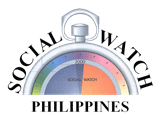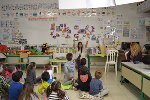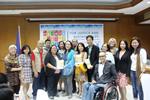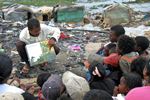Social Watch News
Published on Sat, 2016-07-09 08:22
While more than 26.3 percent or about 27 million Filipinos live in poverty, the benefits from growth are concentrated in the hands of few billionaire families, the less than 1 percent who dominate the political economy. Tax injustice is imbedded in the system and unregulated corporate activities harm people and the environment. The Philippines can reduce inequality by changing the economic geography. We can reverse the big city-oriented development by supporting the provincial and local economies. We can do this by shifting from conventional, fossil fuel-intensive farming to organic and sustainable agriculture and by changing the pattern of public expenditure so that adequate resources, and authority, too, are deliberately transferred from the rich regions to the poorer ones.
|
Published on Sat, 2016-07-09 05:48
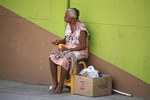
Photo: Alex E. Proimos (CC/Flickr)
|
Peru has experienced sustained economic growth, due largely to rising prices of gold, copper and other minerals, but virtually the entire territory has been given in concession to mining, oil, and logging companies, frequently in conflict with local populations. Income poverty has decreased, but multidimensional poverty has worsened. Progress has been made in circulation of money and electronic and telephone connectivity, but there has been a decline in quality of life and public safety, as increased levels of crime is taking over streets and cities and corruption resulting from the influence of corporate power reaches every part of the government.
|
|
Source: 
. Published on Sat, 2016-07-09 00:20
BHOLA, Bangladesh, Jul 9 2016 (IPS) - Four years ago, Farzana Aktar Ruma, now 18, was almost married off without her consent.
Her parents had settled on someone they considered a reasonably wealthy young man with a good family background, and did not want to miss the opportunity to wed their eldest daughter.
|
Published on Fri, 2016-07-08 22:48
Cyprus is situated in the intersection of Africa, the Middle East and Europa. However, instead of the more nuanced and fluid identity required for the country to be a truly multicultural society, public and private discourses are polarized, traditionally between Turkey and Greece and, since the banking crisis of 2015, between those defending public welfare spending and the power of labor unions and the advocates of free market neoliberalism and limited government. The 2030 Agenda risks confronting a long established inertia on the part of the Government with regard to non-binding agreements and will likely be opposed by the corporate sector, as it will be assumed that the ethical standards, like due diligence and minimization of carbon footprint, will increase their operational cost or lower the demand.
|
Published on Fri, 2016-07-08 19:02
Social Watch, with different partners will be co-hosting several side-events during the High-level Political Forum on Sustainable Development (HLPF) to be held in New York, July 11th to 20th, 2016. See below the information of the side events.
|
Published on Fri, 2016-07-08 18:15
Signing up to the promise of a Philippines where no one is left behind and following the path to sustainability, Social Watch Philippines (SWP), along with the CSO contributors from its network, presents on Friday our "Spotlight Report" on the 2030 Development Agenda in a dialogue with the National and Economic Development Authority (NEDA) at SEAMEO-Innotech, Quezon City.
This is in time for the presentation of the Philippine report to the first High Level Political Forum (HLPF) on July 11-20 at the UN Headquarters in New York. In consort with 22 other countries, the Philippines is expected to lead the national review and report on how the 2030 agenda will be translated into national sustainability plans.
|
Published on Fri, 2016-07-08 18:06
The Philippine economic growth is unjust and not sustainable, as the nation's wealth is concentrated among few billionaires and highly dependent on fossil fuels, according to Social Watch Philippines.
"A just and sustainable growth ensures that no one is left behind," Isagani Serrano, SWP co-convenor and Philippine Rural Reconstruction Movement president, said on Friday.
The civil society group noted the Philippines can achieve its sustainable development goals by 2030 if the economic growth is not concentrated in the hands of a few billionaires.
|
|
Published on Fri, 2016-07-08 08:48
|
|
Source: 
. Published on Fri, 2016-07-08 00:00
The Philippine economic growth is unjust and not sustainable, as the nation's wealth is concentrated among few billionaires and highly dependent on fossil fuels, according to Social Watch Philippines.
"A just and sustainable growth ensures that no one is left behind," Isagani Serrano, SWP co-convenor and Philippine Rural Reconstruction Movement president, said on Friday.
|
Published on Thu, 2016-07-07 16:23
In all societies, from Northern Europe to South Saharan Africa, there are people that are so isolated, excluded and impoverished that they live in a state of extreme poverty that is passed from one generation to the next. They do not only live in material deprivation but also lack political voice and social capital and for these reasons they are often neglected or overlooked by politicians, service providers and policy-makers. The obstacles that maintain them in poverty are therefore never properly understood nor addressed, with the result that the human rights violations that are the cause and the consequence of their extreme poverty continue unabated, and that the human capital they represent continues to be wasted.
|
SUSCRIBE TO OUR NEWSLETTER
Submit

|

